Ditapis dengan
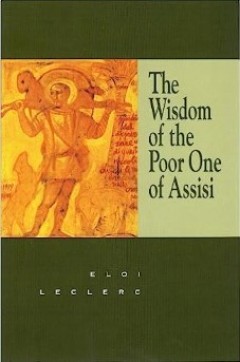
The Wisdom of the Poor One of Assisi
Returning from a pilgrimage to the Holy Land, St. Francis finds the order of humble friars, which he had founded, has grown so tremendously that now over 6,000 monks consider themselves "Franciscans." But St. Francis is appalled to find that with this apparent success came a total rejection of his original vision which this thriving community of friars regarded as outmoded and unsuited for the…
- Edisi
- First Published
- ISBN/ISSN
- 0-932727-47-6
- Deskripsi Fisik
- ix + 116 pgs.; 21,5 cm.
- Judul Seri
- -
- No. Panggil
- 843.914 LEC w
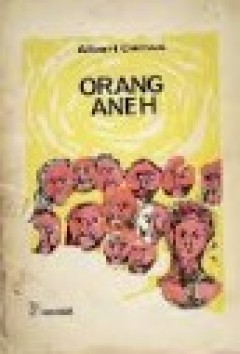
Orang Aneh
- Edisi
- Cetakan ke-1
- ISBN/ISSN
- -
- Deskripsi Fisik
- 108 hlm.; 21 cm.
- Judul Seri
- -
- No. Panggil
- 843 CAM o
- Edisi
- Cetakan ke-1
- ISBN/ISSN
- -
- Deskripsi Fisik
- 108 hlm.; 21 cm.
- Judul Seri
- -
- No. Panggil
- 843 CAM o
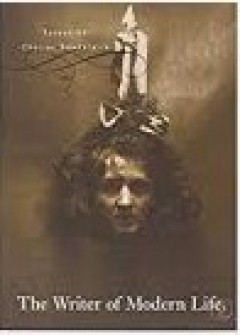
The Writer of Modern Life : Essays on Charles Baudelaire
- Edisi
- First Published
- ISBN/ISSN
- 978-0-674-02287-4
- Deskripsi Fisik
- 306 pgs.; 21 cm.
- Judul Seri
- -
- No. Panggil
- 841.8 BEN w
- Edisi
- First Published
- ISBN/ISSN
- 978-0-674-02287-4
- Deskripsi Fisik
- 306 pgs.; 21 cm.
- Judul Seri
- -
- No. Panggil
- 841.8 BEN w
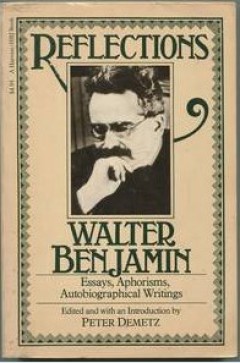
Reflections : Essays, Aphorisms, Autobiographical Writings
- Edisi
- First Published
- ISBN/ISSN
- 0-8052-0802-X
- Deskripsi Fisik
- xliii + 348 pgs.; 20,5 cm.
- Judul Seri
- -
- No. Panggil
- 834.912 BEN r
- Edisi
- First Published
- ISBN/ISSN
- 0-8052-0802-X
- Deskripsi Fisik
- xliii + 348 pgs.; 20,5 cm.
- Judul Seri
- -
- No. Panggil
- 834.912 BEN r

The Wisdom of Gibran : Aphorisms and Maxims
- Edisi
- First Published
- ISBN/ISSN
- 0-8065-2252-6
- Deskripsi Fisik
- xi + 112 pgs.; 21 cm.
- Judul Seri
- -
- No. Panggil
- 828 WIS w
- Edisi
- First Published
- ISBN/ISSN
- 0-8065-2252-6
- Deskripsi Fisik
- xi + 112 pgs.; 21 cm.
- Judul Seri
- -
- No. Panggil
- 828 WIS w
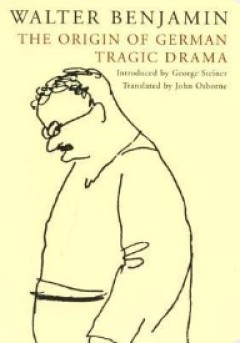
The Origin of German Tragic Drama
Walter Benjamin is widely acknowledged as amongst the greatest literary critics of this century, and The Origin of German Tragic Drama is his most sustained and original work. Indeed, Georg Lukacs—one of the most trenchant opponents of Benjamin’s aesthetics—singled out this work as one of the main sources of literary modernism in the twentieth century. The Origin of German Tragic Drama…
- Edisi
- First Published
- ISBN/ISSN
- 1-85984-413-8
- Deskripsi Fisik
- 256 pgs.; 19,5 cm.
- Judul Seri
- -
- No. Panggil
- 832.051209 BEN o

The Correspondence of Walter Benjamin 1910-1940
Called “the most important critic of his time” by Hannah Arendt, Walter Benjamin has only become more influential over the years, as his work has assumed a crucial place in current debates over the interactions of art, culture, and meaning. A “natural and extraordinary talent for letter writing was one of the most captivating facets of his nature,” writes Gershom Scholem in his Foreword…
- Edisi
- First Published
- ISBN/ISSN
- 0-226-04237-5
- Deskripsi Fisik
- xxii +651 pgs.; 23,5 cm.
- Judul Seri
- -
- No. Panggil
- 838.91209 JAC c

Selected Writings Volume 1 1913-1926
Walter Benjamin was one of the most original and important critical voices of the twentieth century, but until now only a few of his writings have been available in English. Harvard University Press has now undertaken to publish a significant portion of his work in definitive translation, under the general editorship of Michael W. Jennings. This volume, the first of three, will at last give rea…
- Edisi
- First Published
- ISBN/ISSN
- 0-674-94585-9
- Deskripsi Fisik
- vii + 520 pgs.; 24 cm.
- Judul Seri
- -
- No. Panggil
- 833.91209 BEN s1
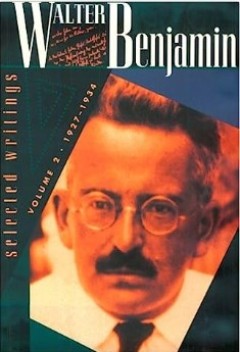
Selected Writings Volume 2 Part 2 1327-1934
In the frenzied final years of the Weimar Republic, amid economic collapse and mourning political catastrophe, Walter Benjamin emerged as the most original practicing literary critic and public intellectual in the German-speaking world. Volume 2 of Selected Writings, covering the years 1927 to 1934, displays the full spectrum of Benjamin's achievements at this pivotal stage in his career. Pr…
- Edisi
- First Published
- ISBN/ISSN
- 0-674-94586-7
- Deskripsi Fisik
- ix + 870 pgs.; 24 cm.
- Judul Seri
- -
- No. Panggil
- 833.91209 BEN s2

Selected Writings Volume 2 Part 1 1927-1930
In the frenzied final years of the Weimar Republic, amid economic collapse and mounting political catastrophe, Walter Benjamin emerged as the most original practicing literary critic and public intellectual in the German-speaking world. Volume 2 of the Selected Writings is now available in paperback in two parts. In Part 1, Benjamin is represented by two of his greatest literary essays, "Sur…
- Edisi
- First Published
- ISBN/ISSN
- 0-674-01746-3
- Deskripsi Fisik
- vii + 870 pgs.; 23,5 cm.
- Judul Seri
- -
- No. Panggil
- 833.91209 BEN s2.1
 Karya Umum
Karya Umum  Filsafat
Filsafat  Agama
Agama  Ilmu-ilmu Sosial
Ilmu-ilmu Sosial  Bahasa
Bahasa  Ilmu-ilmu Murni
Ilmu-ilmu Murni  Ilmu-ilmu Terapan
Ilmu-ilmu Terapan  Kesenian, Hiburan, dan Olahraga
Kesenian, Hiburan, dan Olahraga  Kesusastraan
Kesusastraan  Geografi dan Sejarah
Geografi dan Sejarah